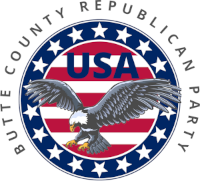GOP History
The Republican Party was born in the early 1850s by anti-slavery activists and individuals who believed that government should grant western lands – such as California – to settlers free of charge.
The very name Republican was chosen to allude to the party’s opposition to human enslavement and government tyranny, as well as a reminder to Thomas Jefferson’s own Democratic-Republican Party.
In 1856, the Republicans became a national party when they nominated John C. Fremont, one of the original US Senators from California, as their candidate for President. Four years later, the Republicans successfully elected their nominee, Abraham Lincoln, to the Presidency.
During his Presidency, the United States was wracked by Civil War. Staying true to the party’s anti-slavery activism, and against the advice of his cabinet, Lincoln signed the Emancipation Proclamation, freeing the slaves. The Republicans of their day worked to pass the Thirteenth Amendment, which outlawed slavery; the Fourteenth, which guaranteed equal protection under the laws; and the Fifteenth, which helped secure voting rights for African-Americans. That historic relationship is why the first African-American Congressmen were Republicans.
Lincoln was also instrumental in the shaping of California’s history. As an ardent supporter of the Transcontinental Railroad, Lincoln signed legislation supporting the construction of the rail line to better unite the nation by spurring economic development in the West and providing our earliest settlers a safe passage to the state.
In 1878, Senator A. A. Sargeant, a Republican from California, introduced the language that would become the 19th Amendment to the Constitution, which would allow women the right to vote. When the 19th Amendment was finally added to the Constitution years later, 26 of 36 state legislatures that had voted to ratify it were under Republican control. The first woman elected to Congress was a Republican, Jeanette Rankin from Montana, in 1917.
Presidents during most of the late nineteenth century and the early part of the twentieth century were Republicans. Between 1952 and 2008, the White House was in Republican hands under Presidents Dwight D. Eisenhower, Richard Nixon, Gerald Ford, Ronald Reagan, George H.W. Bush and George W. Bush. Under Presidents Ronald Reagan and George H.W. Bush, the United States won the Cold War, releasing millions from Communist oppression, in true anti-big government Republican spirit.
The Republican Party has a strong history in California, with many of its most notable governors as members of the party. Those include Leland Stanford (businessman, US senator, and founder of Stanford University); Hiram Johnson (US senator, political reformer); Earl Warren (14th Chief Justice); and Ronald Reagan (US President).
Other US presidents that have called California home are Herbert Hoover and Richard Nixon.



